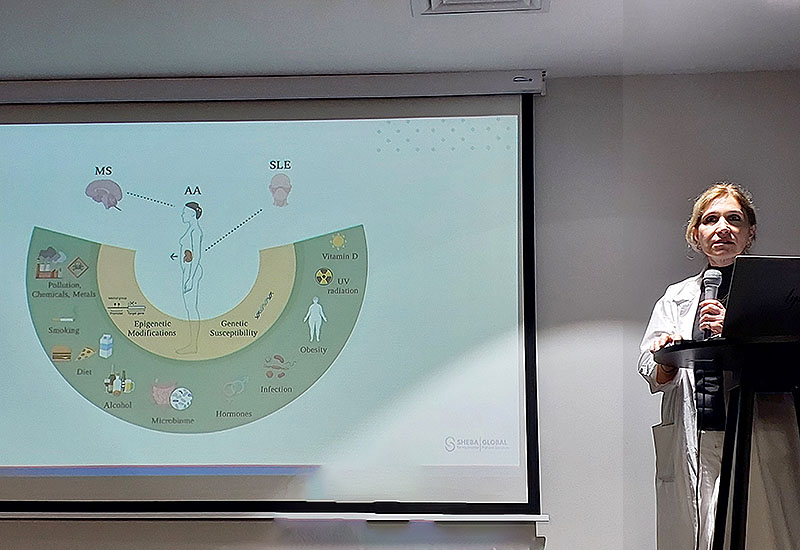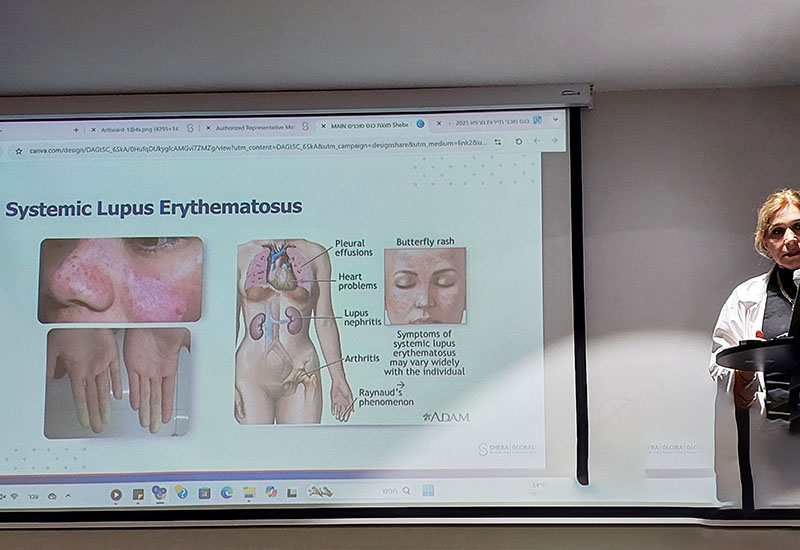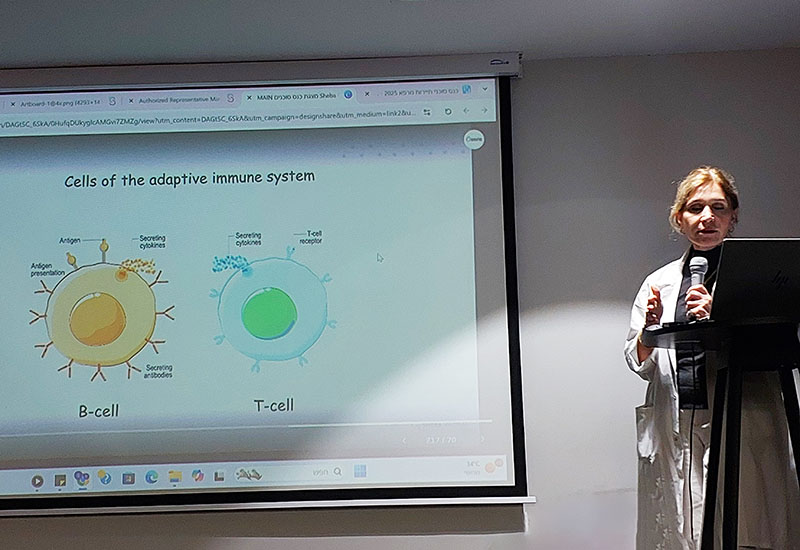Understanding Lupus (SLE)
Systemic Lupus Erythematosus (SLE) — commonly known as lupus — is a chronic autoimmune disease in which the immune system becomes overactive and attacks healthy tissues throughout the body. Lupus can affect many organs, including the joints, skin, kidneys, heart, lungs, blood vessels, and nervous system.
Symptoms vary widely between patients but often include fatigue, joint pain, skin rashes, fever, and inflammation of various organs. The course of the disease is unpredictable — with periods of flares and remission — and it disproportionately affects women, especially those of childbearing age. Lupus can significantly impact a person’s quality of life, particularly when the disease does not respond to conventional therapies.

Prof. Lidar in a lecture about the CAR-T program
Traditional Treatments for Lupus – With Limitations
Historically, lupus has been treated with immunosuppressive medications such as corticosteroids, hydroxychloroquine, immunomodulators, and biologic drugs. One of the most widely used biologics for severe lupus is MabThera (rituximab), a monoclonal antibody that targets B-cells — the immune cells that produce autoantibodies.
Although MabThera is not officially approved for SLE in many countries, it has been used off-label for years, particularly in patients with lupus nephritis, vasculitis, or neuropsychiatric complications. Some patients respond well, while others experience limited benefits or relapse after B-cell repopulation. Overall, these treatments can help reduce inflammation and protect organ function, but they often require long-term use, bring serious side effects, and do not offer a lasting cure. For many people living with refractory lupus, the search for better solutions continues.

CAR-T Therapy: A New Era in Lupus Treatment
CAR-T cell therapy (Chimeric Antigen Receptor T-cell therapy) represents a groundbreaking approach for patients with treatment-resistant lupus. Originally developed for cancer, this form of personalized immunotherapy is now showing promising results in autoimmune diseases, including SLE. CAR-T therapy works by collecting a patient’s own T-cells, genetically modifying them in a lab to recognize specific immune targets, and reintroducing them into the body. These engineered T-cells then seek out and eliminate the malfunctioning immune cells that are driving the disease.

Why CAR-T for Lupus?
Studies and early clinical trials have shown that B-cell depletion using CAR-T cells can lead to significant and sustained remission in patients with severe lupus and even cure. In many cases, symptoms have improved dramatically and steroid dependency has been reduced or eliminated.
For patients with SLE who have exhausted conventional options, CAR-T offers a real chance at regaining quality of life — with less reliance on chronic immunosuppression.
CAR-T Clinical Trial for Lupus at Sheba Medical Center
At Sheba Medical Center in Israel, a leading clinical trial is currently underway offering CAR-T therapy for patients with systemic lupus erythematosus (SLE). This is part of a broader initiative targeting severe autoimmune and rheumatologic diseases. The program is led by Prof. Merav Lidar, a renowned expert in autoimmune conditions and Director of Sheba’s Center for Autoimmune Diseases.
Patients from around the world may be eligible to participate in this innovative program, pending medical evaluation.
To qualify, the disease must be clinically active. It is important to note that early intervention is critical — as once permanent damage has occurred in organs or tissues, it cannot be reversed. The goal is to treat the disease before irreversible harm is done.
Who May Qualify for CAR-T Therapy for Lupus?
CAR-T treatment may be considered for patients who:
- Have moderate to severe lupus with significant organ involvement
- Have not responded to multiple immunosuppressive treatments
- Are in stable enough condition to undergo the treatment process (approx. 8–10 weeks in Israel)
Start the Evaluation Process
If you or someone you love is living with lupus and traditional treatments have not provided relief, CAR-T therapy in Israel may offer a new path forward.
Take the first step toward hope and healing — Contact us today to learn more about this innovative treatment option.
Publication date: August 2025










